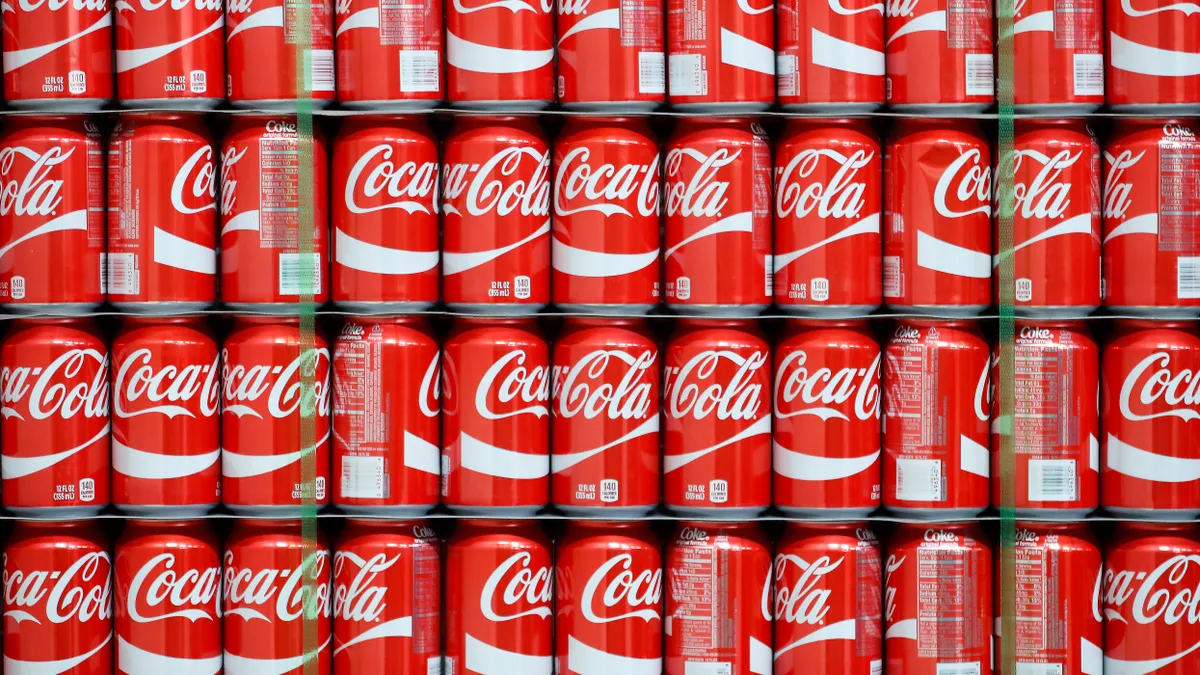Dive Brief:
- Coca-Cola North America will nearly double its spending on minority-owned media companies by 2024, meaning businesses led by Black, Hispanic and Asian-American and Pacific Islander (AAPI) people will account for 8% of its total annual media budget over the next three years, per a company announcement.
- Compared to last year, Coke plans to quintuple its spending on minority-owned media in 2021. At the same time, it is deepening relationships with newer media partners, including Ebony/Jet, Revolt TV and My Cultura, as well as more long-standing ones such as Essence and Univision.
- In fostering a larger commitment to diversity, Coke will look into more non-media partnerships and empowerment initiatives. Internally, the company plans to have its workforce be representative of U.S. census data by race and ethnicity at all job levels by 2030.
Dive Insight:
Coke joins a growing fray of marketers that are putting forward more ambitious commitments to diversity, equity and inclusion (DEI) after a year where issues like racial justice and equity remained in the spotlight. The decision followed a "thorough analysis" of the company's marketing spend, Melanie Boulden, chief marketing officer of Coke's North America unit, said in a press statement. Boulden was appointed to lead the unit's marketing last fall, per Ad Age.
Many companies on both the brand and agency side of the industry have centered their renewed DEI pushes around media spending — a tack Coke takes in doubling down on work with publishers like Essence, Jet and Univision. Coke's global procurement arm has also teamed with the Georgia Minority Supplier Development Council on a pilot certification assistance program supporting Black, Hispanic and AAPI media owners. The effort acknowledges that smaller companies face disadvantages in competing for business opportunities with a multinational company like Coke, according to Fernando Hernandez, vice president of supplier diversity.
The beverage giant has recently broadened its DEI purview to cover more non-media partnerships in areas ranging from warehousing to IT, partially in response to the economic impacts of the coronavirus pandemic. In 2020, it revealed plans to invest at least $500 million in Black-owned enterprises across its supply chain over the next five years.
Marketing's bigger focus on DEI comes as both consumers and media owners hold brands more accountable in putting forward representative depictions of society and equitable work environments. In a similar move to Coke, McDonald's in May said it would more than double investments in diverse media partners by 2024. The same day as the announcement, the burger chain was hit with a lawsuit alleging a pattern of racial stereotyping and refusals to contract based on federal and state law.
Two decades ago, Coke paid $192.5 million to settle a class-action lawsuit alleging a pattern of racial discrimination. While progress on improving representation was made in the years after the settlement — one of the largest such payouts in corporate history — a December report in The Wall Street Journal indicated the company more recently has lost ground. The share of Black executives at Coke was just 8% in 2020, according to internal data.















